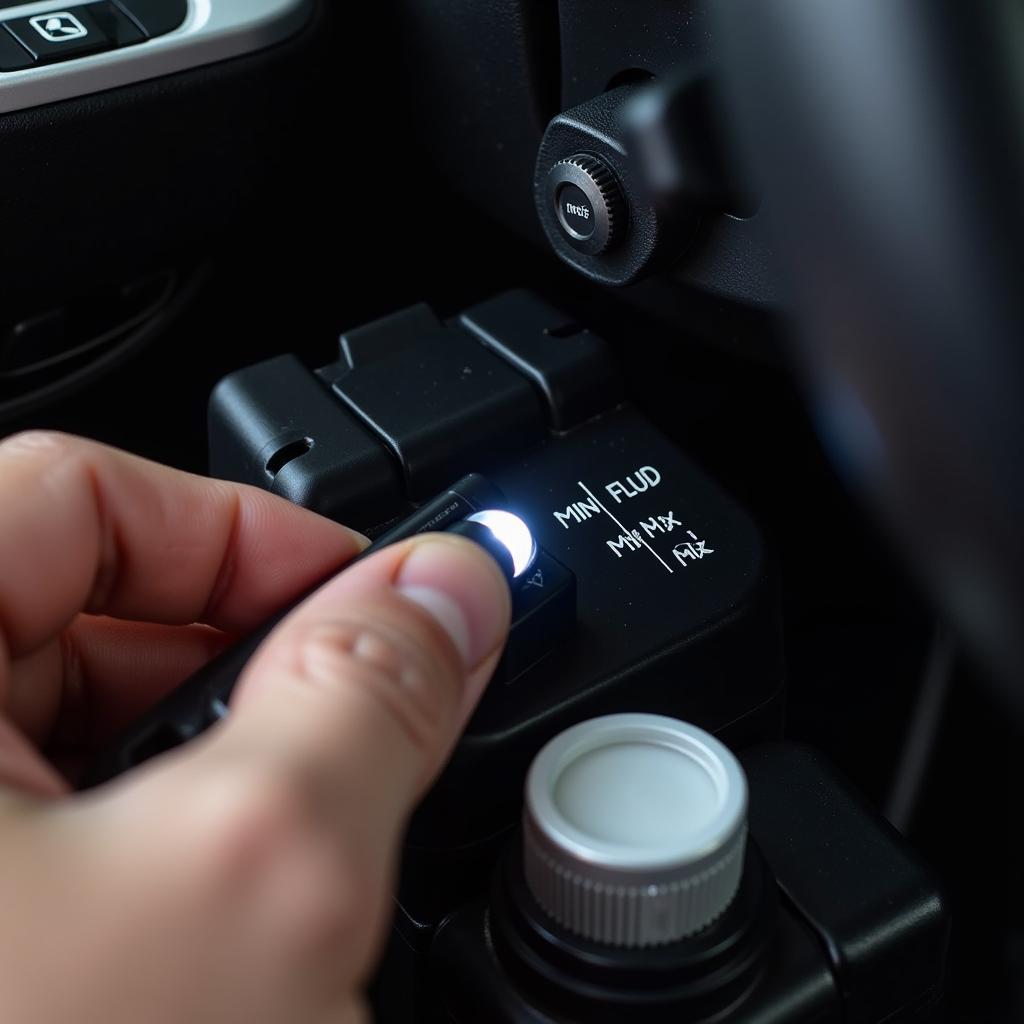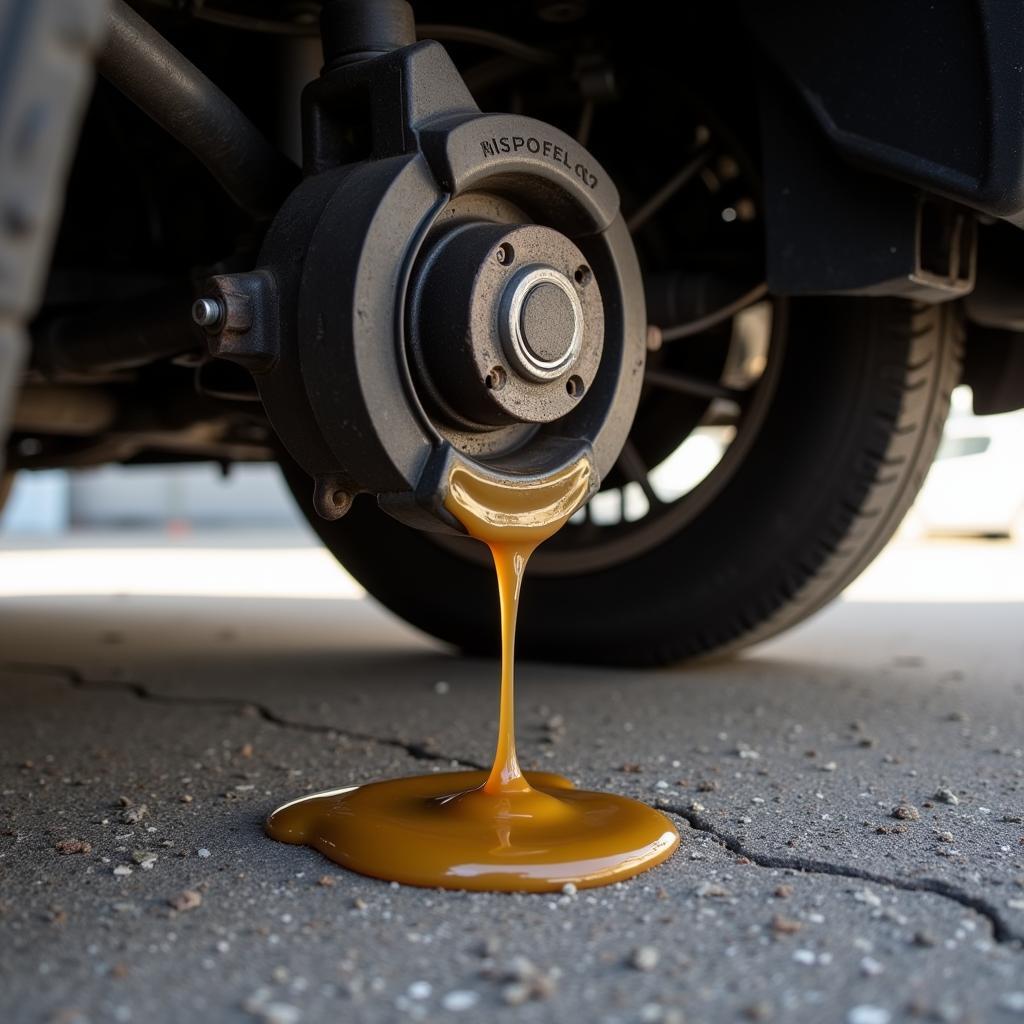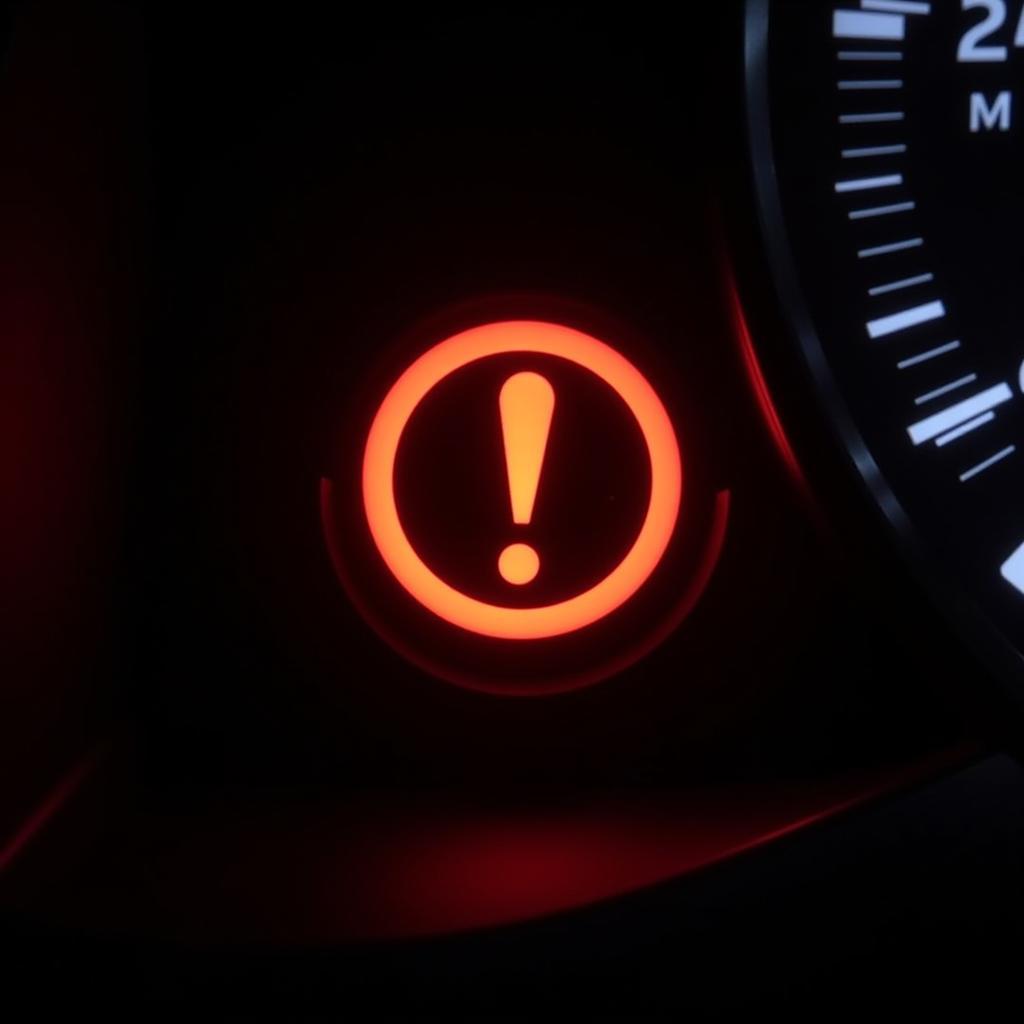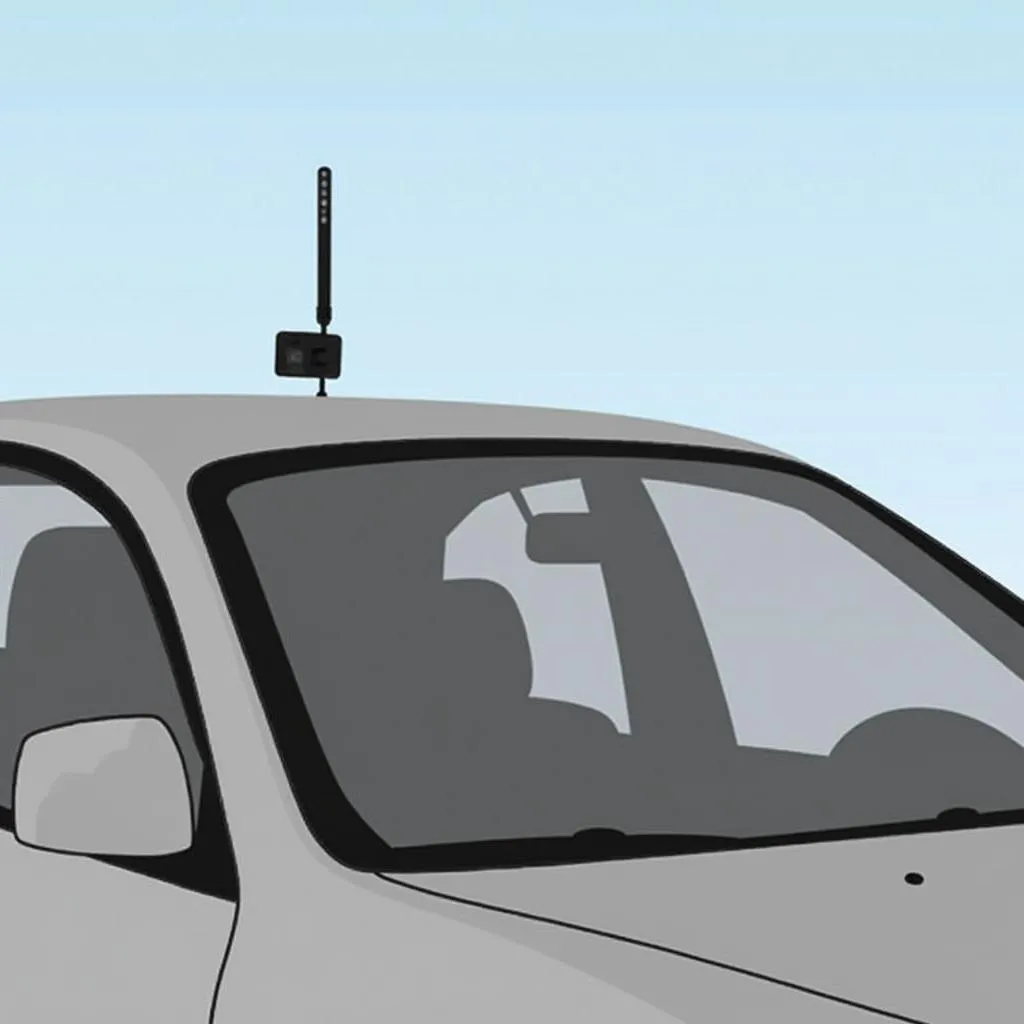A glowing amber or red brake fluid warning light on your BMW’s dashboard is a serious matter that shouldn’t be ignored. It usually signals a problem with your braking system, which could range from low brake fluid to a severe malfunction.
This comprehensive guide delves into the common causes of the BMW brake fluid warning light and provides potential solutions to help you address the issue safely and effectively.
Understanding Your BMW Brake System
Before we dive into the causes and solutions, it’s crucial to have a basic understanding of how your BMW’s braking system works. The system relies on hydraulic pressure to engage the brakes when you press the pedal.
Here’s a simplified breakdown:
- Brake Fluid: This specialized fluid acts as the lifeblood of the system, transmitting the force from your foot on the brake pedal to the wheels, effectively slowing down or stopping the vehicle.
- Master Cylinder: This vital component houses the brake fluid reservoir and generates the hydraulic pressure needed for braking.
- Brake Lines: A network of metal lines connects the master cylinder to the brakes at each wheel, ensuring the even distribution of brake fluid and pressure.
- Brake Calipers and Pads: These components work together to clamp down on the brake rotors, generating the friction required to stop the vehicle.
Why is My BMW Brake Fluid Warning Light On?
The appearance of the brake fluid warning light indicates a potential problem within the system. Let’s explore the most common culprits:
Low Brake Fluid Level
The most common reason for the warning light to illuminate is a low brake fluid level. As brake pads wear down over time, they become thinner, requiring more brake fluid to be pushed into the calipers to maintain optimal braking performance.
How to check:
- Locate the brake fluid reservoir under the hood, usually on the driver’s side.
- Check the fluid level against the “Min” and “Max” markings on the reservoir.
- If the level is below the “Min” mark, it’s time to top it up.
 Checking BMW Brake Fluid Level
Checking BMW Brake Fluid Level
Important:
- Only use the brake fluid type recommended in your BMW’s owner’s manual.
- If you need to add brake fluid frequently, it’s crucial to have your brake system inspected by a qualified mechanic as soon as possible to identify and address any underlying leaks.
Worn Brake Pads
As mentioned earlier, worn brake pads are a common culprit behind low brake fluid levels.
Signs of worn brake pads:
- Squealing or grinding noises when braking
- Vibrations felt through the brake pedal
- Longer stopping distances
If you suspect your brake pads are worn, it’s essential to have them inspected and replaced by a professional mechanic immediately.
Brake Fluid Leak
A leak in the brake system, such as in the brake lines, hoses, or calipers, can lead to a significant loss of brake fluid and a drop in hydraulic pressure.
Signs of a brake fluid leak:
- Visible fluid leaks under the car, typically near the wheels or brake components
- A soft or spongy brake pedal
- The brake pedal going all the way to the floor
 Detecting a Brake Fluid Leak in a BMW
Detecting a Brake Fluid Leak in a BMW
A brake fluid leak demands immediate attention. If you suspect a leak, do not drive your BMW and contact a qualified mechanic immediately.
Faulty Brake Sensors
While less common, a malfunctioning brake fluid level sensor or brake pad wear sensor can also trigger the warning light. These sensors are designed to alert you of potential problems, but they can sometimes fail and provide inaccurate readings.
What to Do When Your BMW Brake Fluid Warning Light Comes On
If your BMW brake fluid warning light illuminates, it’s crucial to take the following steps:
- Pull over safely. Find a safe location to stop your vehicle as soon as possible. Continuing to drive with a compromised braking system can be extremely dangerous.
- Check the brake fluid level. If you feel comfortable doing so, carefully inspect the brake fluid level in the reservoir.
- Add brake fluid if necessary. If the level is low and you have the appropriate brake fluid on hand, carefully top it off to the “Max” line.
- Contact a qualified BMW mechanic. Regardless of whether you were able to top up the brake fluid, it’s imperative to have your BMW inspected by a professional mechanic to diagnose and address the underlying issue.
Expert Insights
John Miller, Senior BMW Technician at Munich Motors:
“The brake fluid warning light is a serious warning that should never be ignored. While low brake fluid is a common culprit, it’s crucial to remember that it often points to a more significant problem, such as worn brake pads or even a fluid leak. Addressing the issue promptly can prevent costly repairs and, most importantly, ensure your safety on the road.”
FAQs
Q: Can I drive my BMW with the brake fluid warning light on?
A: It’s strongly advised against driving your BMW with the brake fluid warning light on. It indicates a potential problem with your braking system, which could lead to reduced braking power or even complete brake failure.
Q: How often should I change my BMW’s brake fluid?
A: BMW recommends changing the brake fluid every 2 years or as specified in your vehicle’s maintenance schedule.
Q: Can I check and top up my BMW’s brake fluid myself?
A: While checking the brake fluid level is a relatively straightforward task, it’s recommended to have a qualified mechanic handle any brake fluid top-ups or replacements to ensure it’s done correctly and prevent contamination.
Conclusion
The appearance of the BMW brake fluid warning light is a clear signal that your vehicle requires immediate attention. By understanding the common causes and taking the appropriate steps outlined in this guide, you can help ensure your safety and keep your BMW running smoothly for miles to come. Remember, prompt diagnosis and repair are key to preventing further damage and ensuring your safety on the road.


